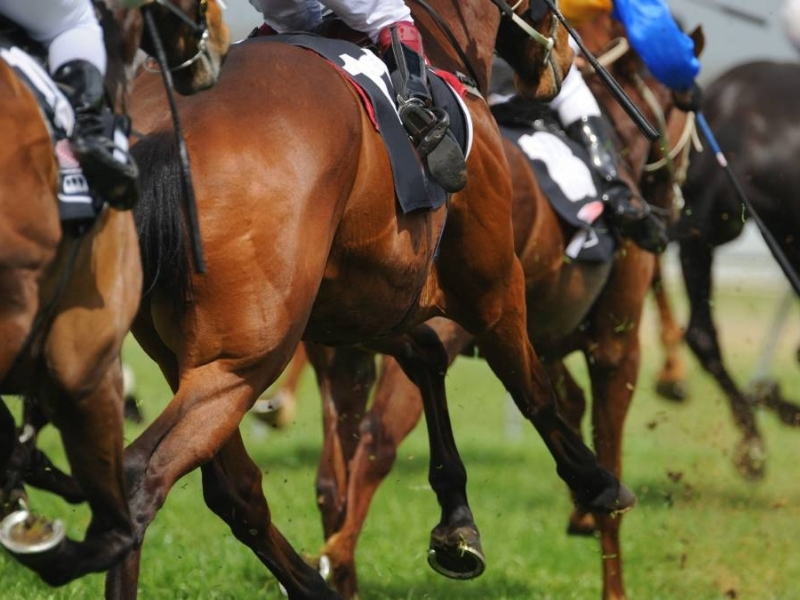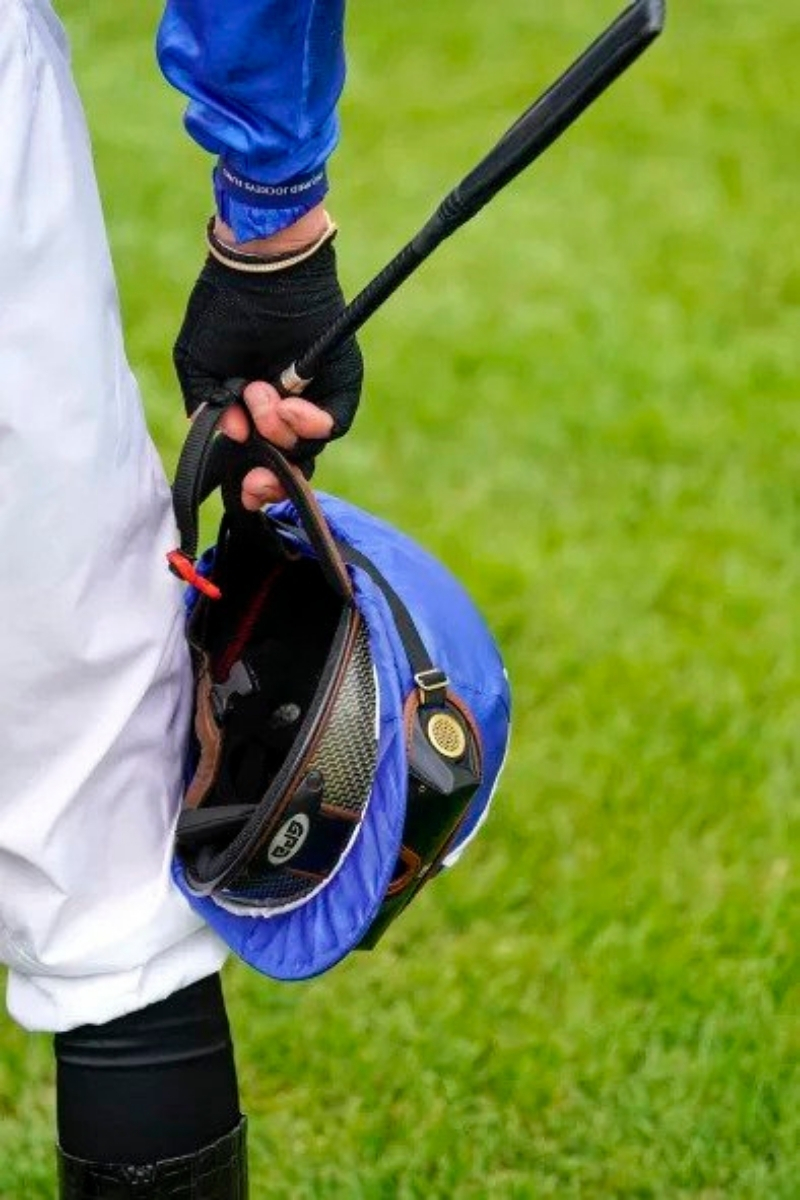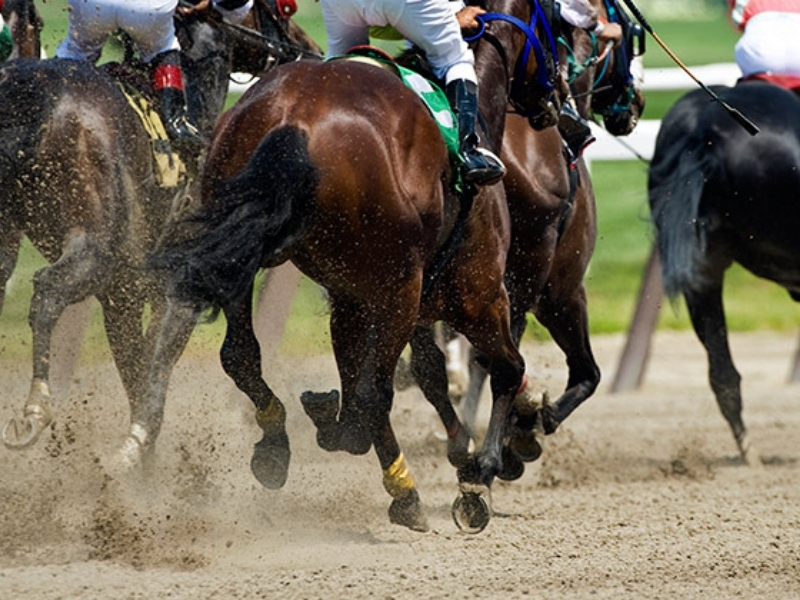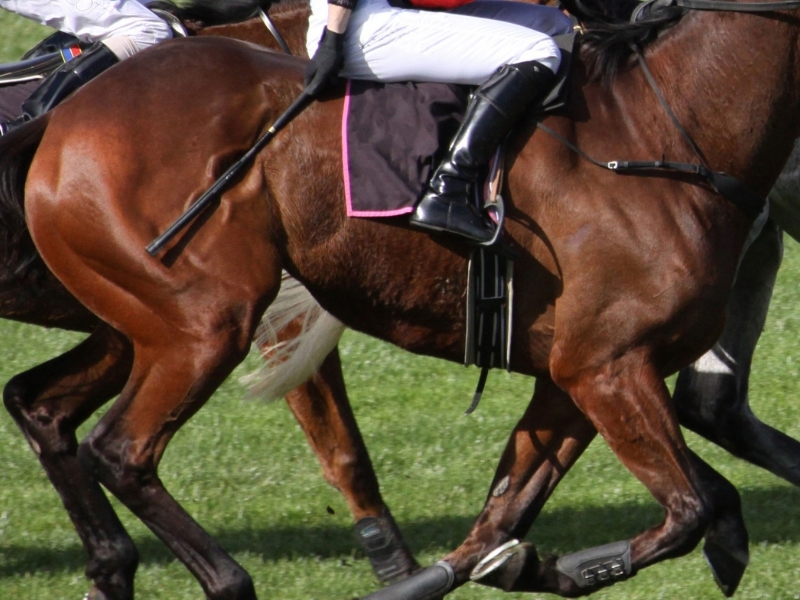The excessive use of whips in Thoroughbred horse racing will potentially be a thing of the past soon, thanks to Racing Victoria's push to reform the current rules of racing. If the proposed changes are passed, it will be a huge first step in the abolition of whip use – though there is still some way to go.
Horse racing raises many issues in regards to animal welfare. The use of whips in the sport is particularly troubling, with the current rules permitting horses to be struck up to 18 times in a race and with limited capacity to restrict the force used.
There is hope on the horizon. Racing Victoria is lobbying the rest of the racing industry to dramatically reform its rules surrounding the use of whips in horse racing.
Current whip use rules
The most serious whip use issue in Australia is what can happen to horses in the last 100 metres of a race. While the current rules state horses may be whipped a maximum of five times per race prior to the last 100 metres, in the final stretch there is no limit to the number of times a jockey can use the whip. Given the huge prizemoney at stake, it's unsurprising that horses are struck repeatedly by jockeys as they near the finish line. For animal lovers, this can be very hard to watch.

Why is this a problem?
Whip strikes cause skin indentation in the area of impact, signalling that force has been applied in a way which can cause pain. Striking the same area of the body multiple times has the potential to cause localised trauma and tissue damage.
While jockeys can strike horses with whips an unlimited number of times in that final 100 metres, studies show that it has little effect on a horse's speed. (You can read about the latest study here – https://theconversation.com/research-shows-whipping-horses-doesnt-make-them-run-faster-straighter-or-safer-lets-cut-it-out-144405)
What makes this most troubling is that the unrestricted whipping occurs when horses are fatigued and least able to respond.
With Racing Victoria's proposed reform, continuous whipping in the last 100 metres of a race will be a thing of the past.

What will this reform mean?
If agreed to, this new reform will more than halve the number of whip strikes permitted in a race, from 18 to a maximum of 8. Jockeys will still be able to use the whip in the case of an emergency, particular if the safety of the horse, jockey or the public is at risk.
During a race, jockeys will be permitted to use the whip on a maximum number of occasions (between 5-8) and never in a horse's consecutive strides.
This will eliminate the blatant cruelty inflicted upon horses in the last 100 metres of the race.
It's a huge step for Thoroughbred horse racing in Australia that will address one of horse racing's most contentious welfare issues.
Racing Victoria's whip reforms weren't adopted at Racing Australia's board meeting, held on Wednesday November 11. However, an investigation of whip use by Racing Australia is due to be completed before the end of the year, and the issue will again be discussed once that investigation concludes. If Racing Victoria's whip reform call is successful, the new rules will come into effect from January 1st, 2021. If unsuccessful, Racing Victoria has indicated it may go it alone with the proposed whip use restrictions.

RSPCA's view:
The RSPCA is opposed to the use of whips in horse racing.
While racing raises many serious concerns about the welfare of the horses, it is encouraging to see that Racing Victoria is finally making changes to their outdated rules, which is something that many members of the public have been calling for as well.
While we support the new reform, RSPCA hopes it is just the first step towards the total banning of whip use in horse racing.
The RSPCA has advocated strongly over many years for the rules to only allow hands-and-heels racing, where whips are only carried for safety purposes where their use is proven to be absolutely necessary. Only then will horse-racing meet current community expectations in relation to whip use.







